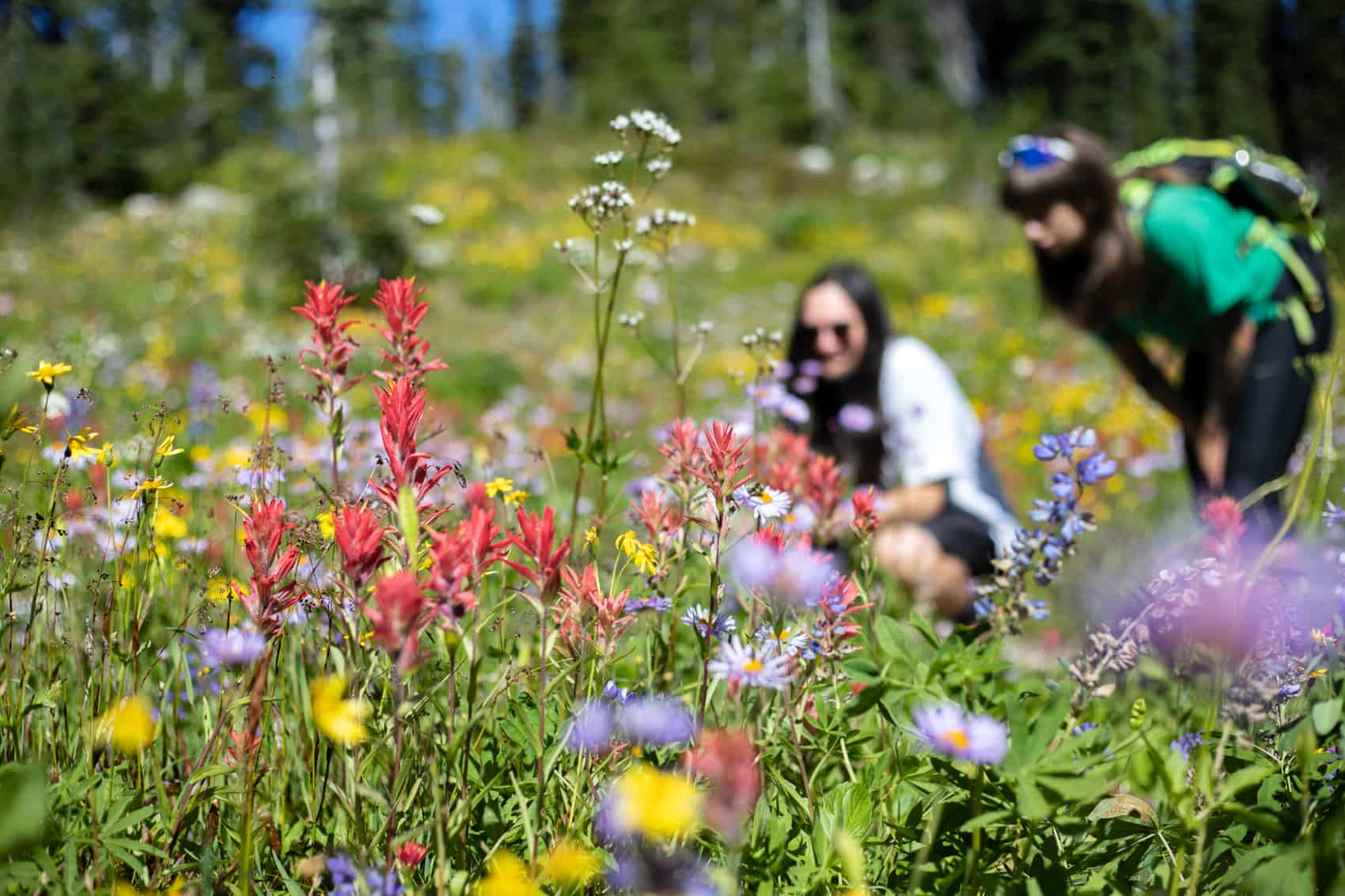Invasive plants can damage our environment.
Every one of us in BC can play our part to stop the spread of invasive species and protect our province. When you're recreating in Revelstoke, follow these simple steps to help prevent the spread of invasive species.
Play Clean Go.
Help prevent the spread of invasive species on our trails:
Arrive with clean gear;
Stay on designated trails; and
Remove plants and seeds from your boots and gear before leaving trails.
Many of our trailheads are equipped with brushes and signage to help prevent the transmission of invasive species.
By being mindful and practicing these simple steps, outdoor recreationalists can stop the spread of invasive species and protect our valuable natural resources.

Mount Begbie | P Laura Szanto
Clean Drain Dry.
Boats and other watercraft, including kayaks and canoes, easily and frequently carry invasive species from one body of water to another. These aquatic invaders are entering BC’s beautiful lakes, streams, and wetlands. Boaters, anglers and paddlers can all take action now to help stop the spread by practicing Clean Drain Dry.
As individual recreationists, marinas, and stewardship groups, we can all help to reduce the spread of harmful aquatic invasive species such as Zebra and Quagga mussels, Largemouth bass, and Eurasian watermilfoil.
When transfering your watercraft from one body of water to another:
CLEAN - Inspect and clean plants, animals and mud from watercraft, trailer and gear.
DRAIN - Drain all water from your watercraft, trailer and gear (e.g. buckets, well, bilge, ballast etc.)
DRY - Dry all parts of your watercraft, trailer and gear completely between trips.
)
Full Speed Rentals | Lake Revelstoke | Boating
Buy Local, Burn Local.
Moving firewood can spread invasive species and diseases that can severely impact our environment and economy.
Buy it local: Buy firewood at or near your destination to ensure that you are not introducing invasive pests or diseases.
Burn it local: If you accidently brought any non-local firewood with you, use it first and burn it completely.
Leave it local: If you have firewood leftover from your stay, leave it behind for the next visitor. Avoid transporting firewood long distances.
BC’s forests are threatened by non-native insects that can damage large numbers of trees, and new infestations of harmful insects and diseases are often first found in campgrounds and parks.
Moving firewood, to or from a campground or cabin, can spread invasive species and diseases that can destroy our forests and harm our air and water. Protect our forests by keeping firewood local.
)
Snowforest Campground | P @cathycruz24
Report Invasive Species.
If you see a plant that looks ‘out of place’ or a creature you don’t recognize and have concerns about, we encourage you to report it. Invasive species tend to pop up in areas that we frequent – like hiking trails and parks, or along roadsides and in ditches. Basically anywhere we go invasive species might come too, so taking extra precautions and reporting what you see are great ways to help.
To report invasive species, visit columbiashuswapinvasives.org or download the Report Invasives BC App
Early detection is critical to stopping the spread of invasive species. You can help detect and locate new infestations of invasive species, particularly those capable of significant environmental or economic harm.
)
Respect regulations and closures.
Some wilderness areas are permanently closed to certain types of traffic to protect both visitors and wildlife. In particular some areas are closed to protect mountain caribou habitat.
Parks Canada will sometimes institute specific regulations about group numbers or close specific trails because of problem wildlife.
Our Visitor Information Centre is a great source for the latest closures and regulations.



